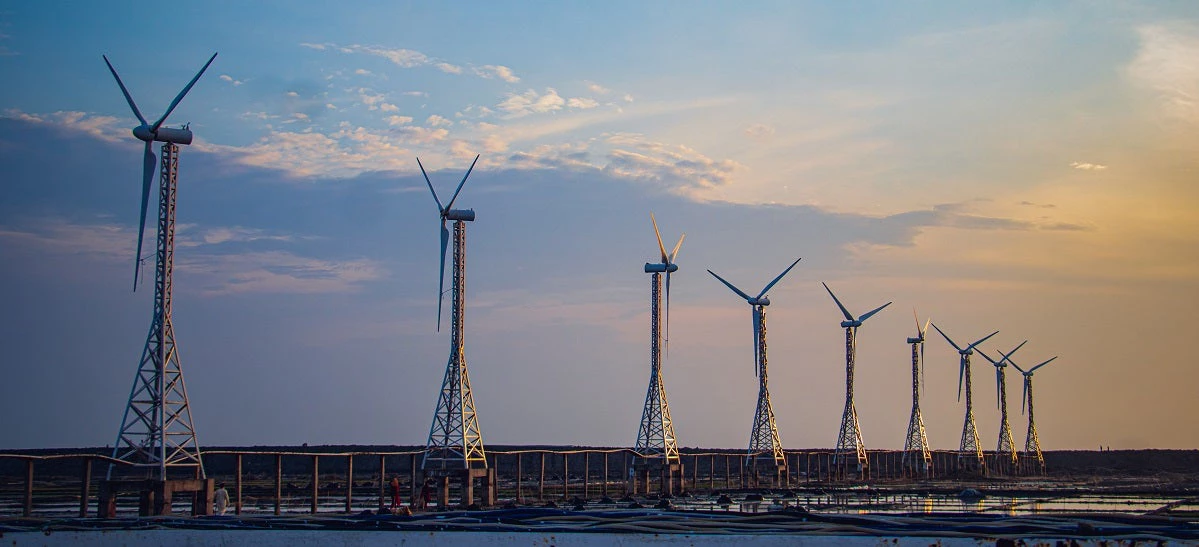 The landscape of the first windmill in Cox's-Bazar, Bangladesh.
The landscape of the first windmill in Cox's-Bazar, Bangladesh.
The European Union and other advanced economies have adopted laws requiring companies to trace the origin of goods and services along their supply chains. Such measures are an important tool in the effort to reduce carbon emissions and promote stronger social and environmental standards. Yet they also raise the risk that small and medium-sized exporters in developing countries will be unable to comply with complex tracing and due diligence requirements. If that happens, they could be excluded from global value chains, which have been important drivers of economic development.
A World Bank panel during the COP28 climate conference discussed the potential impact of environmental due diligence measures on developing-country exports. Participants agreed that advanced economies should harmonize carbon-emission standards and certification requirements. To maintain export competitiveness, small and medium-sized enterprises (SMEs) in developing countries will need support to decarbonize to remain competitive. Following are excerpts from the discussion, which focused largely on carbon standards:
Jean-Marie Paugam, deputy director general of the World Trade Organization, addressed the risk of excluding developing countries from global value chains.
“Fragmentation of global trade would not only affect developing countries economically, but it would also prevent developed countries from achieving their climate objectives ,” he said. “It goes back to the old paradigm of comparative advantage. A world integrated economy is a specialized economy, and a specialized economy is a more efficient economy.”
He said the WTO is encouraging members to avoid fragmentation and accelerate the green transition, for example, by reducing high tariffs and other barriers to trade in the technologies needed to reduce carbon emissions.
“We can liberalize trade policies at the multilateral level to accelerate investment in innovation and the dissemination of green technologies,” he said. “We need to leverage private finance and those trillions of investments which are needed. If you are going to leverage investment, you need a market. And if you want a market, you need a global market, because then you can have much greater economies of scale.”
Sam Mugume Koojo, assistant commissioner in Uganda’s Ministry of Finance, Planning and Economic Development, said developing-country governments and exporters need support from multilateral organizations to meet sustainability standards .
“Give us the capacity to understand where the markets are, and their principles and their conditions,” he said. “Exporters in most developing countries, I would say in Uganda also, they are not aware of these sustainability standards.” Even in cases where the existence of standards is known, compliance will be difficult. He cited the EU Deforestation Regulation, which will require demonstrating that some imported commodities, such as coffee and cocoa, were not cultivated on land that was deforested or degraded after 2020.
“One of the challenges that exporters face is to trace where the goods that you want to export are coming from, ” he said. “If it’s coffee, where is it coming from? From which region? Where was it planted? What standards has it gone through?”
Tom Smith, director of global government affairs at Walmart Inc., urged governments to harmonize their supply chain transparency regulations.
“The key to supporting suppliers to comply with these regulations is to drive more consistency,” he said. With more consistent supply chains, “A supplier or an SME could complete one set of information and share it with all their different customers, be it in Europe, or the United States, or Australia,” he said. “That way, we can lower the burden of complying with these regulations and allow suppliers to focus on the actual work of implementing regenerative practices across their supply chains.”
Kimberley Botwright, head of sustainable trade at the World Economic Forum, described what developing-country governments can do to help firms comply with the emissions standards in export markets.
“It means zeroing in on, where do you currently have suppliers exporting? Where are you currently driving growth in your economy through exports? Where are there suppliers that are maybe smaller scale and are going to need support?”
She added that importers will be looking for evidence of emissions reductions in traditionally carbon-intensive sectors. “Take textiles, for example. Bangladesh exports most of its textiles. The emissions need to come down in that secto r, and there will increasingly be a buyer’s push for that. So, if I were Bangladesh, I’d be looking at how I could attract clean energy investments that are appropriate for decarbonizing that particular sector.”
In wrapping up the discussion, Mona Haddad, the World Bank’s Global Director for Trade, Investment, and Competitiveness, noted that many small and medium sized exporters in the developing countries she had visited weren’t aware of the new environmental and social regulations. It will be important for developed economies such as the EU, the US, and Japan, as leaders in efforts to promote supply chain transparency, to support those firms in their efforts to comply , she said.


Join the Conversation